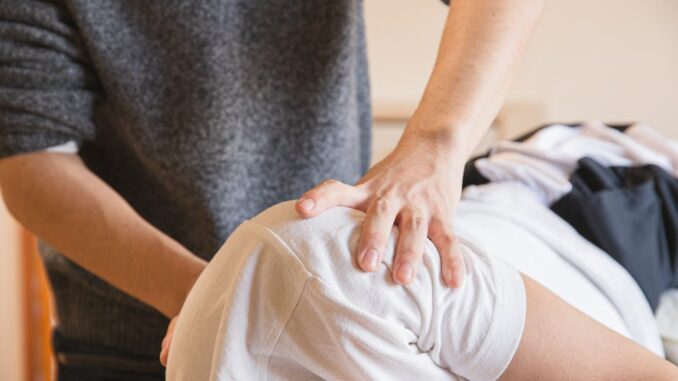
Summary
Self-care is crucial for addiction recovery, nurturing physical, mental, and emotional well-being. This article guides you through practical relaxation techniques to manage stress, reduce cravings, and build a foundation for lasting sobriety. Learn how to prioritize your well-being and navigate the recovery journey with resilience.
** Main Story**
Relaxation & Recovery: Your Guide to Self-Care in Addiction
Recovery from addiction? It’s a seriously brave journey. One filled with healing, and well, transformation. It’s going to demand strength, resilience, and a real commitment to looking after yourself – the whole you. Now, while staying away from substances is obviously the first and most important step, true recovery goes beyond just that. It’s about rebuilding your life, figuring out what’s really going on underneath the surface, and, crucially, learning healthy ways to cope.
One of the most helpful tools in this whole process? Self-care. And relaxation techniques are key.
Why Relaxation Matters
Stress, anxiety, emotional ups and downs… they’re all pretty common companions when you’re on the road to recovery. And let’s be honest, these feelings can be overwhelming, often triggering cravings, which then, of course, increases the risk of relapse. Relaxation techniques, though? They’re like a lifeline. Giving you the skills to manage those tough emotions and get back some control. They help calm your nerves, ease muscle tension, and create a sense of calm.
By making relaxation a regular thing, you’re building resilience, strengthening your ability to cope, and laying a solid foundation for lasting sobriety. It’s an investment in yourself, really.
Practical Relaxation Techniques: A Step-by-Step Guide
So, what can you actually do? Here are some practical techniques you can start using right now:
1. Deep Breathing:
- Step 1: Find a quiet spot. Somewhere you can sit or lie down without being disturbed.
- Step 2: Close your eyes. Then, take a nice, slow, deep breath in through your nose. Fill those lungs right up.
- Step 3: Hold it for a few seconds.
- Step 4: Slowly breathe out through your mouth. Really focus on letting the tension go from your body as you exhale.
- Step 5: Do this for 5-10 minutes. Just focus on your breathing. The rhythm of it.
2. Progressive Muscle Relaxation:
- Step 1: Get comfy.
- Step 2: Start with your toes. Tense those muscles tightly for a few seconds. Squeeze!
- Step 3: Now, release. Feel the relaxation. Notice the difference?
- Step 4: Work your way up your body, tensing and releasing each muscle group one by one. Feet, calves, thighs, you know the drill. Don’t forget your face! It can hold a surprising amount of tension.
- Step 5: Keep going until you’ve relaxed your whole body.
3. Mindfulness Meditation:
- Step 1: Sit up straight, but relaxed. Close your eyes.
- Step 2: Focus on your breath. Just notice the feeling of each inhale and exhale.
- Step 3: Thoughts will pop up, that’s normal. Acknowledge them, but don’t judge them. Just gently bring your attention back to your breath.
- Step 4: Do this for 10-15 minutes. Work towards cultivating a sense of being present in the moment. It can be harder than it sounds, but it’s worth it.
4. Connecting with Nature:
- Step 1: Get outside! Go for a walk in the park, sit by a lake, or just look at the trees and sky. You don’t need to climb a mountain. Even a small dose of nature can make a difference.
- Step 2: Engage your senses. What do you see, hear, smell, feel? Pay attention to the world around you. One time I was in a park and it was so quiet, it was a cold winter morning, I remember the cold air on my cheeks and how much it woke me up, you know?
- Step 3: Be present. Just be there. Appreciate the beauty and calm of nature.
5. Creative Expression:
- Step 1: Explore your creative side. Writing, painting, music, dance… whatever feels right.
- Step 2: Let your emotions out through your chosen medium. Don’t hold back.
- Step 3: Forget about being perfect. It’s about the process, not the product. It’s about the release you get from creating something. So don’t worry if it’s good or bad, just enjoy yourself.
Making Relaxation Part of Your Recovery
Look, self-care isn’t selfish. It’s crucial. Make relaxation a non-negotiable part of your recovery plan. Schedule it in, just like you would for any other important appointment. Start small, maybe just 5 minutes a day, and build up from there.
Be kind to yourself. Celebrate your progress. And remember, recovery isn’t a sprint, it’s a marathon. These relaxation techniques? They’ll help you navigate the ups and downs with more ease. As you continue on your path, you’ll find that taking care of yourself isn’t just good for your recovery. It’s a gift you give yourself, opening the door to a life filled with peace, joy, and lasting sobriety. And isn’t that what we all want, really?


Be the first to comment